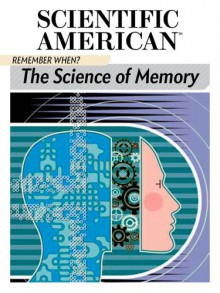Remember When?
We don’t often marvel at the process of remembering—that is, until we forget. What allows us to remember, and how do we forget? Most importantly, why do we remember certain things and not others? In this e-book, Remember When? The Science of Memory, we explore what science can tell us about...
show more
We don’t often marvel at the process of remembering—that is, until we forget. What allows us to remember, and how do we forget? Most importantly, why do we remember certain things and not others? In this e-book, Remember When? The Science of Memory, we explore what science can tell us about memory, starting with an introductory section defining what memory is, including what makes something memorable and some common misconceptions about memory. A surprising piece by Gary Stix, “You Must Remember This … Because You Have no Choice,” explores why some people can remember what they had for lunch on a Tuesday 20 years ago while others can’t. There’s also a fascinating Q&A with Eric Kandel, neuroscientist and psychiatrist who won the Nobel Prize for his groundbreaking work on how neurons fire together in order to store memories in the brain. Section 2 delves deeper, analyzing the anatomy of memory, from how memories are saved to how they’re transferred from short-term storage in the hippocampus to long-term storage in the cortex. Other sections explore various aspects of memory from its role in learning to the effects of trauma and age. Joe Z. Tsien discusses his technique of genetically tweaking certain receptor proteins on neurons in “Building a Brainier Mouse.” In “Erasing Painful Memories,” long-time journalist Jerry Adler looks at research into both behavioral therapies and drugs that can help to alter painful or traumatic memories after the fact. Finally, the last section looks at ways to improve your memory. One story links dreaming to improved learning. In another, R. Douglas Fields summarizes the work behind the idea of a “smart pill,” based on the relatively recent discovery that a specific protein kinase might boost memory and could be given in pill form to enhance that most mysterious process.
show less
Format: kindle
ASIN: B00C2RXUZQ
Publish date: April 22nd 2013
Publisher: Scientific American
Pages no: 222
Edition language: English

